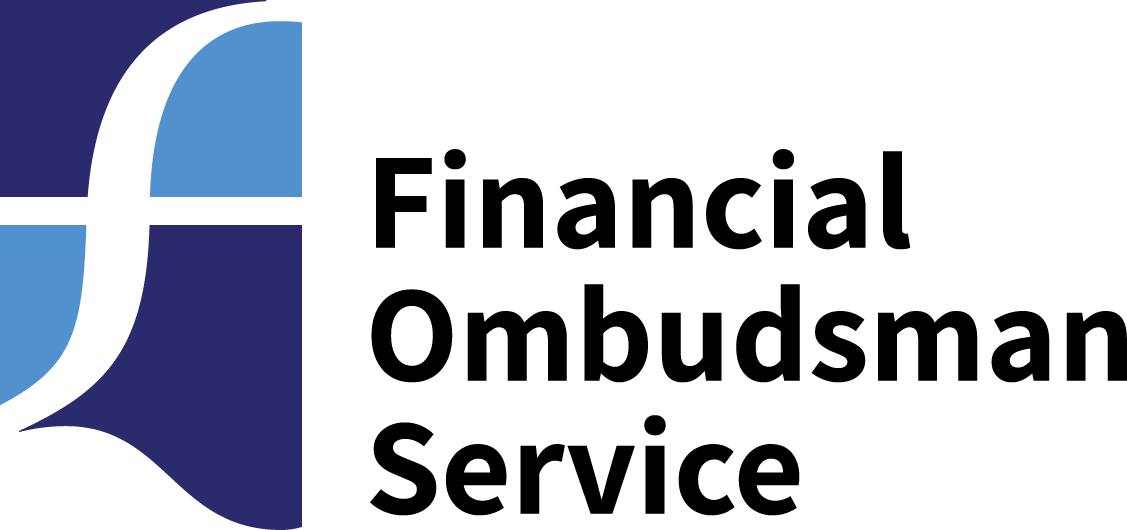Vulnerable Clients Policy
Aim
Definition
A vulnerable person is someone who, due to their personal circumstances, is especially susceptible to detriment, particularly when a firm is not acting with appropriate levels of care.
The FCA’s Principles & Rules
FCA Principles for Businesses
Principle 2: Skill, care and diligence: A firm must conduct its business with due skill, care and diligence.
Principle 3: Management and Control: A firm must take reasonable care to organise and control its affairs responsibly and effectively, with adequate risk management systems.
Principle 6: A firm must pay due regard to the interests of its customers and treat them fairly.
Principle 7: A firm must pay due regard to the information needs of its clients, and communicate information to them in a way which is clear, fair and not misleading.
Principle 9: Customers: relationships of trust: A firm must take reasonable care to ensure the suitability of its advice and discretionary decisions for any customer who is entitled to rely upon its judgement.
CONC 7.10 Treatment of customers with mental capacity limitations
A firm must suspend the pursuit of recovery of a debt from a customer when:
(1) the firm has been notified that the customer might not have the mental capacity to make relevant financial decisions about the management of the customer’s debt and/or to engage in the debt recovery process at the time; or
(2) the firm understands or ought reasonably to be aware that the customer lacks mental capacity to make relevant financial decisions about the management of the customer’s debt and/or to engage in the debt recovery process at the time.
However, this does not prevent firms from pursuing the debt through a responsible third party acting on behalf of the customer, where the customer has given prior consent, for example, pursuant to a registered lasting power of attorney.
CONC 8.2.7: Vulnerable Customers
A firm must establish and implement clear and effective policies and procedures to identify particularly vulnerable customers and to deal with such customers appropriately.
Most customers seeking advice on their debts under credit agreements may be regarded as vulnerable to some degree by virtue of their financial circumstances.
Achieving Good Customer Outcomes
To achieve good outcomes for vulnerable customers, the firm will take action to:
- understand the needs of their target market/customer base
- make sure staff have the right skills and capability to recognise and respond to the needs of vulnerable customers
- respond to customer needs throughout flexible customer service provision and communications
- monitor and assess whether they are meeting and responding to the needs of customers with characteristics of vulnerability, and make improvements where this is not happening
The firm aims to provide good customer service that shall include:
- Setting up systems and processes in a way that will support and enable vulnerable consumers to disclose their needs. Staff should be able to spot signs of vulnerability.
- Delivering appropriate customer service that responds flexibly to the needs of vulnerable consumers.
- Making consumers aware of support available to them, including relevant options for third party representation and specialist support services.
- Putting in place systems and processes that support the delivery of good customer service, including systems to note and retrieve information about a customer’s needs.
The firm will consider how it communicates with vulnerable consumers, taking into consideration their needs. Where possible, the firm will offer multiple channels so vulnerable consumers have a choice. The firm shall aim to ensure all communications and information about products and services are understandable for consumers in their target market and customer base.
The firm shall monitor and evaluate by doing the following:
- Implementing appropriate processes to evaluate where it has not met the needs of vulnerable consumers, so that it can make improvements.
- Produce and regularly review management information, appropriate to the nature of their business, on the outcomes it is delivering for vulnerable consumers.
Understanding The Needs Of Vulnerable Customers
The FCA has set out the factors that can act as drivers to actual or potential vulnerability:
- health – health conditions or illnesses that affect the ability to carry out day to day tasks
- life events – major life events such as bereavement or relationship breakdown
- resilience – low ability to withstand financial or emotional shocks
- capability – low knowledge of financial matters or low confidence in managing money. Low capability in other relevant areas such as literacy or digital skills.
Examples of vulnerability
Certain risk factors are particularly important within financial services:
- poor literacy, numeracy and financial capability skills
- physical disability
- severe or long-term illness
- mental health problems
- low income and/or debt
- caring responsibilities (including operating a power of attorney)
- being ‘older old’ for example over 80, although this is not absolute (may be associated with cognitive or dexterity impairment, sensory impairments such as hearing or sight, onset of ill-health, not being comfortable with new technology)
- being young (associated with less experience)
- change in circumstances (e.g. job loss, bereavement, divorce)
- lack of English language skills
- non-standard requirements or credit history (e.g. armed forces personnel returning from abroad, ex-offenders; care-home leavers, recent immigrants)
Not all customers with characteristics of vulnerability will be vulnerable, but they may be more likely to have additional or different needs which, if not met by firms, could limit their ability to make decisions or to represent their own interests.
Consumers may not want the label ‘vulnerable’ applied to them. While we refer to customers as being vulnerable throughout this procedure, staff should not use this label in their interactions with consumers.
The Firm understands what characteristics of vulnerability are likely to be present in its target market or customer base.
Frontline staff should identify anyone who may have difficulty in understanding their conversation as being a vulnerable or potentially vulnerable client. They should be aware that the Coronavirus pandemic can mean that an increasing number of clients are vulnerable or potentially vulnerable. These clients are deemed to be at higher risk of receiving inappropriate advice. Signs to look out for if speaking on the telephone for example include:
- They ask you to speak up or speak more slowly or to repeat the information
- They appear confused
- They take a long time to get to the phone and sound flustered or out of breath, indicating they may have a lack of mobility due to age or illness
- They take a long time to answer questions. They say “My son/daughter/wife/husband deals with these things for me”
- Increasing pre-occupation (‘brain is elsewhere’) limiting their ability to manage
- Where there is a language barrier they are vulnerable as they may not fully understand what is being said to them
- They say that they don’t understand their bill, a previous phone conversation or recent correspondence
- They mention medication
Where a firm doesn’t understand the impact of vulnerability and associated needs and respond to these, the overall impact of these consequences on consumer welfare may be detrimental and vulnerable consumers will be at increased risk of experiencing harm. The firm will aim to act with appropriate levels of care.
Communications
Communications throughout the life-cycle of a product or service should be clear and provided to vulnerable consumers in a way that they can understand. This may include providing different formats where it is proportionate to do so. Good practice can include offering a choice of communication channels which could include telephone, email, in branch, text, written, web-chat, and video calls.
Staff should proactively check that consumers with characteristics of vulnerability that may impact their comprehension, understand information provided about a product or service.
Telephone Meetings
Frontline staff have a duty of care to vulnerable clients to ensure that all reasonable measures are taken to enable them to understand the information and advice given. This may involve arranging for documentation to be provided in a different format, e.g. Braille, Audio or Large Print.
There is a need to ensure that advantage is not taken or alleged to have been taken when dealing with people who may not be in a position to fully understand the recommendations made to them. Vulnerable clients should therefore be identified to ensure they have full representation, where applicable. The fact find and any accompanying notes should document any communication issues, including details of how these have been overcome.
Elderly clients
Most elderly clients will be of sound mind and perfectly capable of dealing with their financial affairs, however with increasing age there is an obvious risk that this may not be the case. For the purpose of this guidance an elderly client is an individual over the age of 80 although care should be taken with any client where there is an indication of a lack of understanding.
If the client is aged 80 or over or if there is an indication that there is a lack of understanding the client should be given the opportunity to have a third party attend any meetings. This should be recorded within the fact find and any accompanying notes, together with any client responses. It may be necessary to re-arrange an appointment to a convenient time to suit the client and third party. There are a range of legal mechanisms, including Power of Attorney to support customers who do not make their own decisions.
Young and Inexperienced clients
Whilst it maybe important for young people to make financial planning provisions and to seek advice, there may be a lack of knowledge and understanding in regards to financial planning matters. As with elderly clients, clients below the age of 18 should be offered the opportunity to have a third person attend the client meetings. This should be recorded within the fact find and replayed within the suitability report, together with client responses.
Procedures
Tips when talking to vulnerable customers
The firm will ensure that all relevant staff have the appropriate skills and capability, as well as support from appropriate systems and processes, to understand and take into account the needs of vulnerable consumers in their work. When speaking to a consumer, staff will:
- Speak clearly
- Be patient / empathise
- Don’t rush them
- Ask whether there is anyone else they need to talk to before making the decision or whether they would like a friend or relative to accompany them on the call
- Guide the call to keep it ‘on topic’
- Don’t assume that you know what the consumer needs
- Clarify understanding at every point posing the question “is there anything you’d like me to explain?”
- Offer alternatives to dealing with things by phone – maybe they would prefer to transact the business face to face or by post or email
- Don’t assume that the person you are talking to can hear everything you are saying
- Remember that vulnerable consumers can sometimes be forgetful or overly trusting
- Ask if there is a better time to call
- Ensuring staff are aware of support provided by third-party support providers, such as debt advice services or mental health support
It is important to encourage consumers to talk about their needs by promoting the firm’s support services. Staff should focus on understanding and responding to the consumer’s financial services’ needs. Frontline staff should be capable of exercising additional care to adapt to the consumer’s needs and be able to exercise judgement on when it is necessary to do so.
Signposting to a third party
Where staff believes that consumers may benefit from support or help from a third-party organisation or charity they should provide clear information to signpost the consumer to the third party e.g. the Samaritans, Mind.
Some vulnerable consumers may be in difficult or crisis situations and it is not appropriate for staff to resolve them. Where there is immediate or serious risk to the health or life of the consumer or their family members, staff may consider it appropriate or necessary to inform the relevant authorities. Organisations offering emotional support and practical help can be found here: https://www.fca.org.uk/publication/documents/victim-support-information.pdf
Flexibility in customer service
Frontline staff are able to adapt their approach to deliver a service that meets the individual needs of vulnerable consumers. Staff will be able to do this as the culture and systems do not discourage staff from taking extra time or flexible steps to respond to vulnerable consumers’ needs.
Clients who are visually or aurally impaired
A firm is obliged under the Disability Discrimination Act to provide equal access to its services irrespective of disability.
Utmost sensitivity should be shown to the client’s needs and circumstances and where appropriate, engage the involvement of the clients own family or chosen third party to facilitate in the transaction. If a client is visually impaired the firm should consider making the relevant documentation available in Braille. If a client has difficulties in hearing, a qualified signer will be able to assist in helping the client understand discussions.
Clients without mental capacity
Loss of mental capacity may be permanent or temporary. Firms are not able to advise clients where their mental capacity has been lost or where there is indication that the client is losing mental capacity. Where provision for a Power Of Attorney (POA) has been executed business should be conducted with the attorney providing copies of the POA documents have been obtained. The adviser should check for any restricted activities and be satisfied that the intended transaction falls within the attorney’s scope. A copy of the POA documents should be kept on the client file.
Clients whose first language is not English
Unless the staff member fluently speaks the same language as the client dealing with non-English speaking clients will present obvious difficulties. In such circumstances similar arrangements to the above should be made. It would be best to arrange for a family member or friend to act as an interpreter or engage the services of an interpreter. If the interpreter is not authorised to give advice, the adviser should be present at all times and the suitability report should be completed in English as well as the client’s chosen language.
Recently Bereaved Clients
People who have been recently bereaved are not generally in a position to consider long term planning objectively. Consideration should be given to deferring the review, except where pressing matters need to be addressed, such as helping with insurance claims.
The Terminally Ill
People who are terminally ill will generally have a requirement to ensure that their affairs are in order to give them peace of mind, but may find that they are overwhelmed with the situation they find themselves in. In these cases it is best to arrange for a family member or friend to attend the meetings.
Where one client is deemed Vulnerable and the other is not
If dealing with a couple regarding a joint policy, so long as one of them is not ‘vulnerable’ it is sufficient to continue with the advice as for non-vulnerable clients.
Changes of Circumstances
Frontline staff should be aware of the potential for clients who have previously been fine to deteriorate or have a change of circumstances which may later lead them to be categorised as a Vulnerable Client. Similarly, clients who were previously categorised as being vulnerable may now be fine. Where the client is deemed to be vulnerable or potentially vulnerable then all reasonable measures must be taken to enable them to understand the information and advice given.
Point of sale
Frontline staff should consider whether the customer demonstrates that they have a general understanding of what decision they need to make and why they need to make it. Ask yourself honestly whether a ‘yes’ is real agreement or just submission.
Ask the following questions: “do you need to discuss this with anyone else” / “would you like me to explain any part of this call again” / “did you want to think about this before making a decision” / “is there anything we can do to help you deal with us”. If they say something that suggests they don’t fully understand what you have said, be prepared to repeat or paraphrase to clarify understanding.
Offer to ‘patch in’ a trusted third-party carer or family member, to the call if this would help. If they don’t want someone else present, suggest that they talk it through with someone else and offer to ring them back.
Staff Training
Frontline staff are adequately trained on how they should handle vulnerable and potentially vulnerable clients:
- Staff will be trained in these new procedures
- All staff will have a copy of the vulnerability guidelines and complaints procedures
- Staff will share knowledge and experiences with other colleagues to help improve the level of support and understanding of dealing with vulnerable consumers
- Staff are made aware of support provided by third-party support providers, such as debt advice services or mental health support. Training materials created by charities, trade or professional bodies are shared with staff
Record Keeping
If we don’t record anywhere that the consumer has particular needs then we can’t ensure that future communications to that consumer are tailored to these needs. In effect, staff have to identify the consumer’s needs and vulnerabilities each time they are spoken to and ensure that a record is kept each time.
The Data Protection Act (DPA) 2018 and General Data Protection Regulation (GDPR) requires that any information stored must be recorded with the full knowledge and consent of the consumer, and must be kept accurate and up to date. If the communication needs of an individual are due to a disability e.g. needs to be contacted by telephone only as blind, care must be taken about the recording of any medical data as it is classed as sensitive personal data and has to be checked for accuracy, should be relevant and not excessive. Furthermore, this data must be deleted when the relationship no longer exists between the company and the customer.
Third Party Authorisation
Some vulnerable customers may need to have some of their commercial transactions conducted by an advisor or intermediary e.g. a friend, a family member, a care worker, a legal advisor. If the advisor or intermediary can correctly answer security questions they should be enabled to conduct the call on the customer’s behalf.
A common sense approach should prevail e.g. the request ‘Mary has asked me to ask you to close her account and transfer the balance to my account’ is much more serious and you may require a more formal authorisation such as a Power of Attorney. Customer facing staff confronted with this situation will be encouraged to question irregular patterns of activity and to report suspicions of fraud or financial abuse by authorised third parties for appropriate investigation.
Scams & Financial Abuse
Consumers with some characteristics of vulnerability may be more likely to fall victim to scams, including misleading online financial promotions. They may be specifically targeted through unsolicited approaches, more trusting or more likely to be persuaded to disclose personal financial details. For example, research has shown that older consumers who may be lonely are more likely to be at risk of being scammed. Some vulnerable consumers may be less likely, or less able, to regularly check their bank account or statements and so less likely to spot unusual transactions. Some may need to rely on informal access methods, which can increase the risk of financial abuse. For example, FCA research showed that 1 in 5 (20%) UK adults, equating to over 10 million adults, had given their credit or debit card to someone else to use, or had shared their current account, savings account or credit card PIN or password with another person in the last 12 months.
Management Information
The firm should identify and monitor management information that allows them to review the outcomes vulnerable consumers experience in comparison to other consumers. The measures in place should test whether they are treating their customers fairly including by delivering the 6 TCF consumer outcomes.
It should take action where staff see poor outcomes for vulnerable consumers to understand what is driving those outcomes. Learning should effectively be fed back into product and service design to ensure that improvements can be made.








